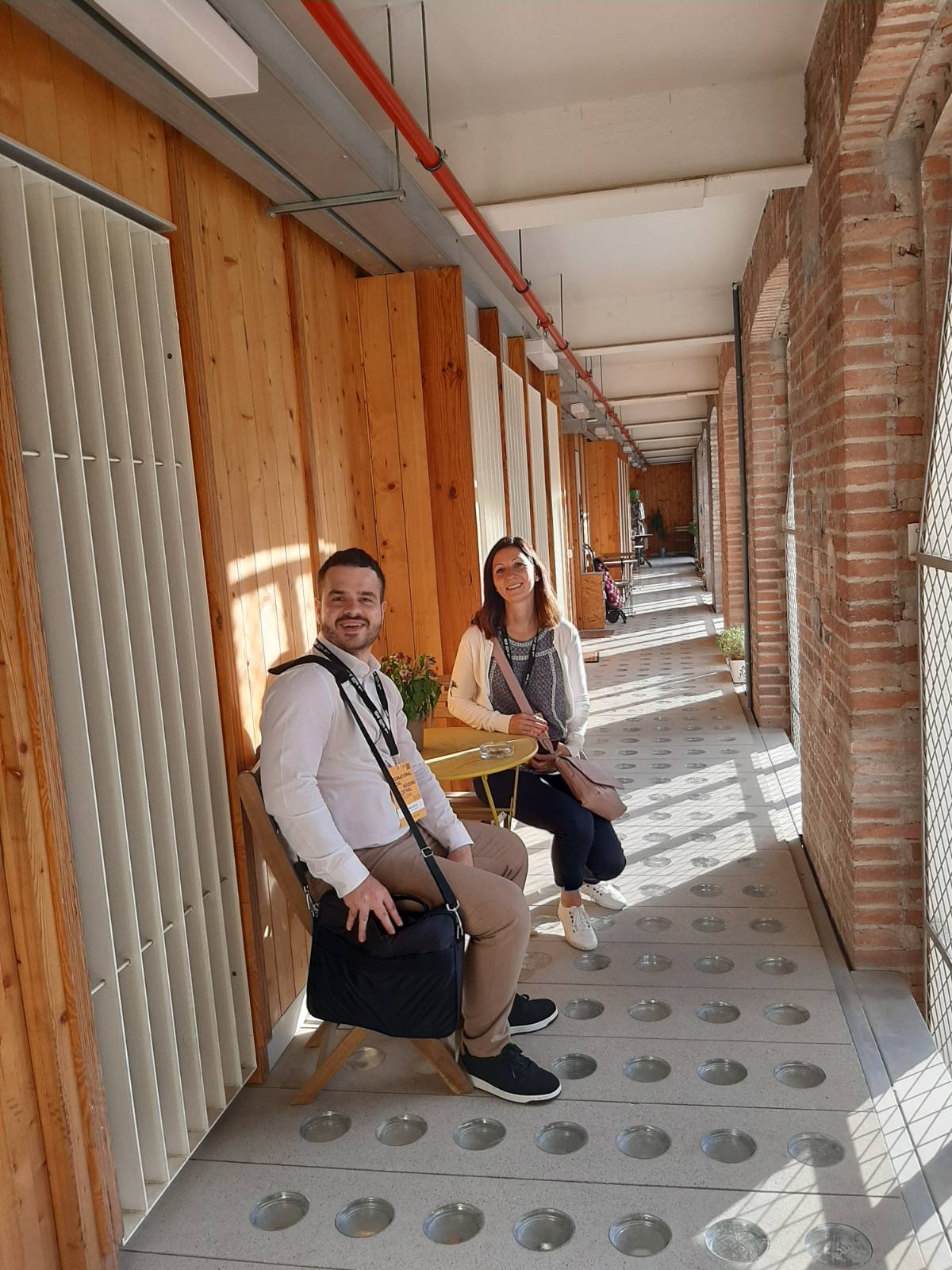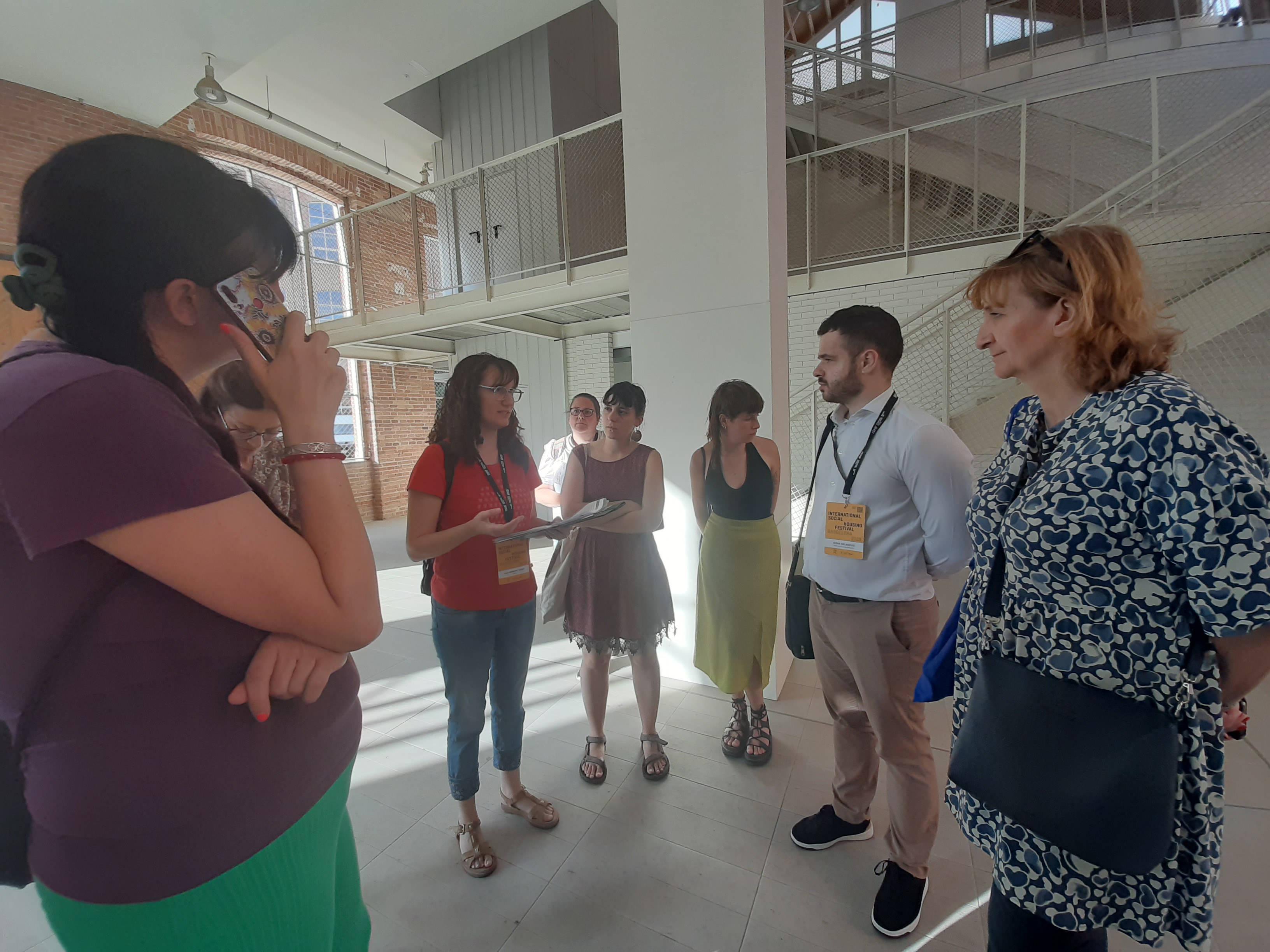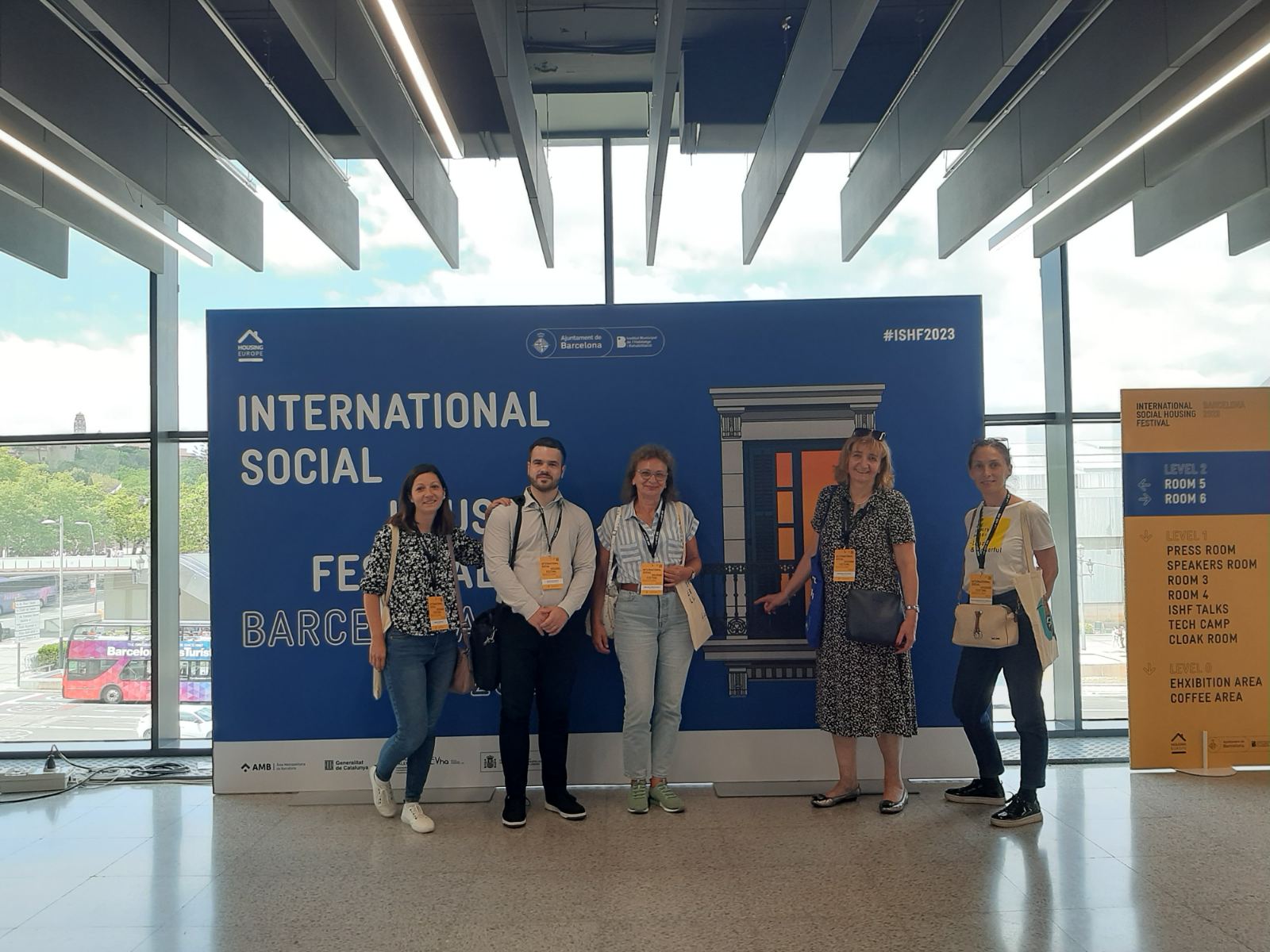EU SHAI study visit to the International Social Housing Festival 2023, Barcelona, Spain
In June 2023, the EU SHAI programme's delegation visited the International Social Housing Festival (ISHF) in Barcelona, Spain.
The ISHF was organised by Housing Europe - the European Federation of Public, Cooperative and Social Housing, and its members and allies, present in 25 countries. This year's festival hosted over 2,000 participants from 82 countries.

The purpose of the visit to the ISHF was threefold:
- to enable representatives of the ministries to learn from EU countries’ best practices, innovative solutions and lessons learnt in the field of social housing and complementary social inclusion measures,
- to witness, first-hand, different approaches related to social and affordable housing for various target groups, and
- to network with key stakeholders from the field.


We are particularly proud that the presentation of the EU SHAI programme attracted a lot of attention and interest from the participants, especially the concept of sustainability, which implies the complementarity of housing solutions and active inclusion measures. We can safely say that this concept and approach based on the individual needs of beneficiaries is completely in line with EU best practices - Milošević concluded.

Boris Milanović from the Ministry of European Integration emphasised that participating in this year's Festival had significantly contributed to his understanding of contemporary problems and potential solutions to problems in social housing.
I have gained better insight into the challenges and possibilities for bringing together actors from all relevant parts of society to bring forward a constructive response during the most challenging period for affordable housing policy, having in mind the dramatic rise in price on the housing market, the energy crisis and lacking support to housing at the national level throughout Europe and the world. Discussions on the strategic planning of housing, macroeconomic and political conditions shaping housing policy, the possibilities for public-private partnership, models for revitalising underused land and other important topics will make a relevant contribution to my work in this field in the future.
Svetlana Ristić from the Ministry of Construction, Transportation and Infrastructure also shared her impressions about the ISHF.
The fourth festival of social housing was very useful, first of all, from the point of view of understanding in which direction the housing sector is developing in different European countries, which problems are common, as well as which specific solutions are being developed in different countries in order to overcome these problems. The majority of participants, and above all the actors operating at different levels (global, regional, national, local), indicate that the free market cannot solve the already accumulated problems caused by the increasing unaffordability of housing and housing services and that it is necessary to find other ways of organising and financing of the housing sector aimed not only at the earliest categories of the population but also at middle-income categories, especially young people in the period of gaining their independence. Public housing agencies, new housing cooperatives for housing in jointly owned buildings, citizen associations at the neighbourhood level, as well as public authorities that prepare and monitor the implementation of housing policy and social integration are recognised as key actors.


